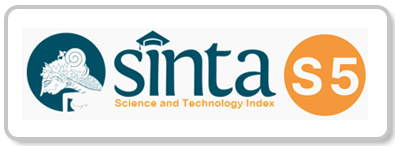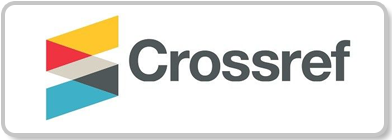Analisis Status Mutu Air di Danau Toba Menggunakan Metode STORET
Studi Kasus Keramba Jaring Apung di Desa Tongging
DOI:
 https://doi.org/10.37859/jst.v12i1.9592
https://doi.org/10.37859/jst.v12i1.9592
Abstract
Lake Toba as the largest volcanic lake in Southeast Asia faces a serious threat in the form of water pollution due to the activities of Floating Net Cages (KJA). This study aims to evaluate the status of water quality in the waters of Lake Toba, especially in Tongging Village, Karo Regency. The evaluation was carried out using the STORET method approach. Water samples were taken at three different time conditions (before, during, and after feeding) at five strategic points representing KJA, around KJA, and river inlets. The results showed that the concentrations of phosphate and nitrate had exceeded the quality standards of PP No. 22 of 2021, reaching 0.072 mg/L and 9.950 mg/L, respectively. The highest STORET method score was -35, indicating severely polluted water conditions. These findings emphasize the need for sustainable fisheries management in Lake Toba.
Downloads
References
A. A. Damayanti, H. D. Wahjono, and A. D. Santoso, “Pemantauan Kualitas Air Secara Online dan Analisis Status Mutu Air di Danau Toba, Sumatera Utara,” J. Sumberd. Alam dan Lingkung., vol. 9, no. 3, pp. 113–120, 2022, doi: 10.21776/ub.jsal.2022.009.03.4.
J. S. T. Manik and R. S. Astuti, “Ancaman Keberlanjutan Pariwisata Danau Toba (Evaluasi Kebijakan Keramba Jaring Apung),” Conf. Public Adm. Soc., vol. 1, no. 1, pp. 54–70, 2019.
S. Adhar, R. Rusydi, M. Mainisa, E. Erlangga, M. Khalil, and E. Ayuzar, “Analisa Limbah Fosfor Kegiatan Keramba Jaring Apung di Danau Laut Tawar Aceh Tengah,” J. Serambi Eng., vol. 6, no. 3, pp. 2024–2032, 2021, doi: 10.32672/jse.v6i3.3051.
J. A. Camargo and Á. Alonso, “Ecological and toxicological effects of inorganic nitrogen pollution in aquatic ecosystems: A global assessment,” Environ. Int., vol. 32, no. 6, pp. 831–849, 2006, doi: 10.1016/j.envint.2006.05.002.
A. Caswell, J. J. Schmidt, N. Matthews, and M. S. Grant, “WORK AND COMMITMENT DURING THE INTERN- Letter From The Deputy Editor Upcoming and Recently- Published Books Seeking MESSAGE From the Business Office,” no. november, pp. 112–113, 2017.
L. Bouwman et al., “Mariculture: Significant and expanding cause of coastal nutrient enrichment,” Environ. Res. Lett., vol. 8, no. 4, 2013, doi: 10.1088/1748-9326/8/4/044026.
Effendi, H. (2003). Limnologi perairan darat tropis di Indonesia. Yayasan Obor Indonesia.
Wetzel, R. G. (1975). Limnology: Lake and River Ecosystems (Vollenweider, klasifikasi trofik). Academic Press.
Downloads
Published
How to Cite
Issue
Section
License
Copyright (c) 2025 Hidayati Hidayati, Meidina Zulfa Hanie, Kevin Heickel Kenza Ginting, Fadhila Fadhila, Ferdy Ashari Syawal

This work is licensed under a Creative Commons Attribution-NonCommercial-ShareAlike 4.0 International License.





















